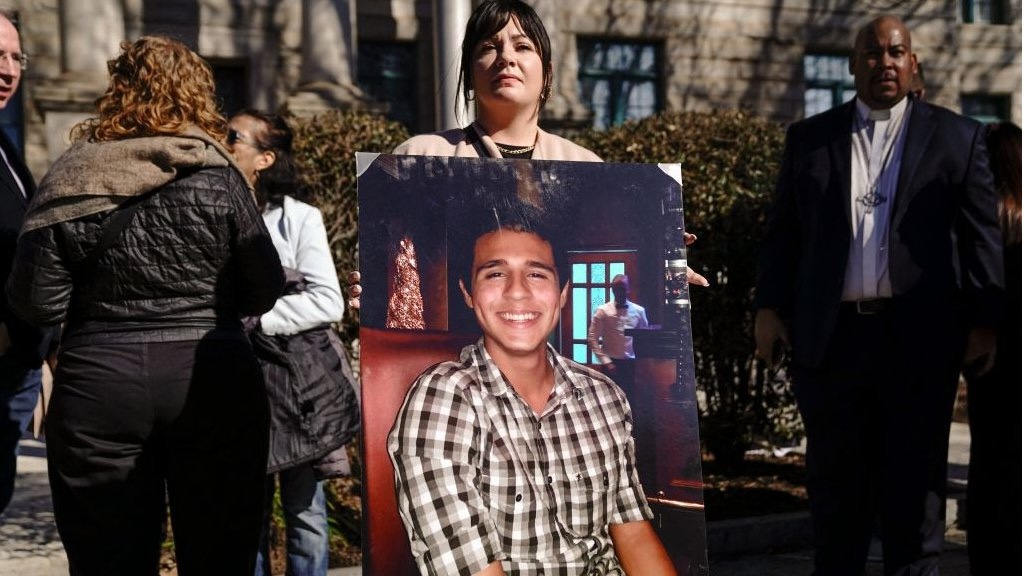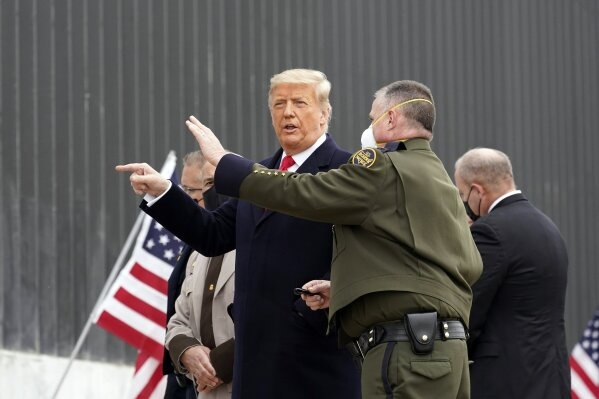Joe Biden and Donald Trump shimmied up and down the Texas border on Thursday on a platform sure to define the 2024 U.S. presidential election.
Biden in Brownsville met with Border Patrol agents, law enforcement and local leaders to remind Republicans he’s got a bipartisan deal on border security provisions on the table. Trump has repeatedly promised that, if reelected, he will pursue “the largest domestic deportation operation in history.”
However, Republicans recent failure to pass the bipartisan border security deal — which includes many of the concessions the GOP has demanded for years — has given Democrats an opportunity to go on offense with Republicans symbolically just a rock’s throw from the Alamo. Assuming, of course, neither candidate runs afoul of social media.
In fact, social media giants came face to face with the Lone Star and Sunshine States this week in a case sure to either embolden their crusades or further erode their controversial First Amendment. At the crux of the matter:
Can social media platforms censor their users free speech?
Monday’s Supreme Court showdown NetChoice v. Paxton will determine if or whether state laws can wrangle social media companies who block, de-platform, ban, demonetize, restrict, de-boost, deny or otherwise discriminate against expression or remove user content.
While Biden patrols the Texas border (taking a wide berth around the impeachment of Homeland Security Secretary Alejandro Mayorkas) he assuages the American voter whose ire toward illegal immigrants under his presidency has doubled. “There were 49.5 million foreign-born residents in the United States (legal and illegal) in 2023,” according to the Center for Immigration Statistics, and the foreign-born population has grown by 4.5 million under Biden's exegesis of U.S. immigration. On President Biden’s first day in office, he paused nearly all deportations; vowed to end the harsh practices of the Trump administration; and show compassion toward those wishing to come to the United States and secure the southern border. The message went viral, particularly since Trump had been blocked from social media.
In 2021, Texas and Florida became the first U.S. states to regulate social media platforms; limit the power of social media companies to moderate and curate speech on their platforms; and require the companies to disclose certain information to the public.
To settle the question, the High Court must decide if or whether social media behemoths are actually publishers, content providers, or just mail carriers. Sidebar: Mail tampering under 18 U.S.C. Section 1702 is anyone who steals, takes, abstracts, buys, receives, or conceals stolen mail, and subject to up to 5 years of imprisonment.
Stop Cop City
Are the protesters of the Atlanta Public Safety Training Center a violent extremist organization, or victims of the nation’s otherwise broken First Amendment? Cop City prosecutions hinge on the newest definition of domestic terrorism.
It’s a decentralized movement across Georgia, whose goal is to stop the construction of the Atlanta Public Safety Training Center. The proposed location for the facility is the Old Atlanta Prison Farm, and detractors argue that the destruction of the forest will exacerbate economic disparities and ecological collapse in a poor-majority Black neighborhood. Moreover, it will increase the militarization of police in the wake of Black Lives Matter.
In all, 42 people involved in the demonstrations against the training facility have been charged under Georgia’s domestic terrorism and racketeering laws, broadened in 2017 to include attempts to “disable or destroy critical infrastructure," and the same law that accused Former President Donald Trump of conspiring to overturn the 2020 election. The charge for all 42 + Trump carries a penalty of up to 35 years in prison.

Manuel Esteban Paez Terán
Opposition intensified in 2022 as officers began sweeping the site. Protesters set up camps on the grounds and erected barricades to block officers and construction crews. Demonstrators threw Molotov cocktails and set off fireworks while law enforcement responded with tear gas and rubber bullets. Casualties include: Manuel Esteban Paez Terán was fatally shot by state troopers in Atlanta on January 18, 2023; and Ashli Babbitt by Capitol Police in Washington DC on January 6. What constitutes domestic terrorism and racketeering can be construed by the states, so in the meanwhile be mindful not to block traffic in New York State.
Patriot Act
The Patriot Act of the 107th United States Congress was signed into law by President George W. Bush. It was enacted shortly after 9-11. It’s aim was to tighten national security against foreign terrorism, by, among other things, legalizing surveillance by law enforcement.
The law is extremely controversial due to its authorization of indefinite detention without trial of immigrants, and due to the permission given to law enforcement to search property and records without the owner's consent or knowledge, several federal courts have ruled a number of provisions unconstitutional.
The Patriot Act’s enduring legacy was to ignite and embolden law enforcement’s notion of domestic terrorism. It reads in part:
Domestic terrorism is defined as any violation of the criminal laws of any state or U.S. code; that appears to intimidate or coerce a civilian population; or to influence the policy of a government by intimidation or coercion; or affect the conduct of a government by kidnapping, assassination, destruction.
While international and domestic terrorism often transact on the super highway and social media, Section 230 of Title 47 of the United States Code provides immunity for online computer services with respect to third-party content generated by its users:
No provider or user of an interactive computer service shall be treated as the publisher or speaker of any information provided by another information content provider.
So are Facebook (3.7+ billion); Instagram (2.4 billion); or TikTok (1.9 billion) publishers, content providers, or simply just mail carriers? It’s the critical question before the U.S. Supreme Court. However, the expositors of the U.S. Constitution must defer to the architects of the First Amendment.
Ministry of Truth
The nation’s constitutional Framers worked hard to create a government that responded to its citizens’ interests rather than telling citizens what their interests should be. The Framers, indeed, feared a government that could control the flow of information and impose its views on the governed. The First Amendment was created to allow for citizens, not the government, to manage a marketplace of ideas.

Trump in El Paso 2021
But when does the federal government run afoul of free speech? Accused of overreach in its efforts to convince social media companies to cull postings of anti-vaxxers during the pandemic, U.S. District Judge Terry Doughty of Louisiana stepped in with an opinion:
During the COVID-19 pandemic, the United States Government appears from evidence to have assumed a role similar to a dystopian scenario or an Orwellian ‘Ministry of Truth.’ ”
Truth Social, an alt-tech social media platform created by Trump Media & Technology Group, while “free from political discrimination” reportedly bans users and blocks all posts related to Jan 6.
Now prior to the invention of movable type texts were copied by hand, typically by monks and literate slaves who were expensive to buy and maintain. After the printing press emerged, and theological heresies spread across Europe, the first copyright law appeared in the "Statute of Anne" in Great Britain (1704).
John Milton’s “Areopagitica” is history's first and most influential defense of freedom of speech and freedom of the press. Written in condemnation of censorship in 1644, freedom of conscience powerfully resonated with America’s founding fathers like Thomas Paine but were immortalized by James Madison.
The Federalist Papers weren't merely publishers, content providers or carriers of information. They were instruments that called upon the republic to ratify the First Amendment. As protestors, migrants, and presidents share their journeys on TikTok, executive action to quell their stories and control messaging is no match for Zack King’s Magic Ride. Here's the reason why. If we don’t believe in free expression for everyone, then we don’t believe in it at all.
And since the Associate Justices are all suckers for precedent, we defer with respect to Judge Hugo Black in New York Times v. United States:
The First Amendment gave the free press the protection it must have to fulfill its essential role in our democracy. The press was to serve the governed, not the governors.








